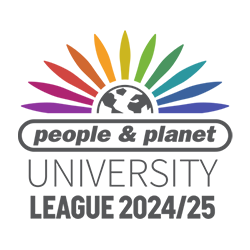-
Study
-
Undergraduate
- Search for a Course
- Undergraduate Open Day & Events
- Application Guides
- Northumbria University UCAS Exhibitions
- Foundation Years
- Undergraduate Fees & Funding
- School & College Outreach
- Continuing Professional Development
-
Postgraduate
- Postgraduate Study Degree
- Postgraduate Research Degrees
- Postgraduate Open Days and Events
- Postgraduate Fees & Funding
- Flexible Learning
- Thinking about a Masters?
- Continuing Professional Development
- Change Direction
-
Student Life
- The Hub - Student Blog
- Accommodation
- Life in Newcastle
- Support for Students
- Careers
- Information for Parents
- Students' Union
- Northumbria Sport
- Be Part of It
-
-
International
International
Northumbria’s global footprint touches every continent across the world, through our global partnerships across 17 institutions in 10 countries, to our 277,000 strong alumni community and 150 recruitment partners – we prepare our students for the challenges of tomorrow. Discover more about how to join Northumbria’s global family or our partnerships.
View our Global Footprint-
Applying to Northumbria
- European Union
- Our London Campus
- Northumbria Pathway
- International Events
- Entry Requirements and Country Representatives
- Global Offices
-
Northumbria Language Centre
- Faculty Requirements
- Acceptable English Requirements
- Pre-sessional English Language and Study Skills
- Academic Language Skills Programmes (ALS)
-
International Fees, Funding & Scholarships
- International Undergraduate Fees
- International Undergraduate Funding
- International Masters Fees
- International Masters Funding
- International Postgraduate Research Fees
- International Postgraduate Research Funding
- International Money Matters
-
Life at Northumbria
- International student support
- Careers
-
International Mobility
- Current Northumbria Students
- Incoming Exchange Students
-
-
Business
Business
The world is changing faster than ever before. The future is there to be won by organisations who find ways to turn today's possibilities into tomorrows competitive edge. In a connected world, collaboration can be the key to success.
More on our Business Services -
Research
Research
Northumbria is a research-rich, business-focused, professional university with a global reputation for academic quality. We conduct ground-breaking research that is responsive to the science & technology, health & well being, economic and social and arts & cultural needs for the communities
Discover more about our Research -
About Us
-
About Northumbria
- Our Strategy
- Our Staff
- Place and Partnerships
- Student Profiles
- Alumni Profiles
- Leadership & Governance
- Academic Departments
- University Services
- History of Northumbria
- Contact us
- Online Shop
-
-
Alumni
Alumni
Northumbria University is renowned for the calibre of its business-ready graduates. Our alumni network has over 246,000 graduates based in 178 countries worldwide in a range of sectors, our alumni are making a real impact on the world.
Our Alumni - Work For Us
What will I learn on this module?
This module will offer you the opportunity to demonstrate a systematic understanding of fundamental public health concepts and to begin the process of critically evaluating them at a deeper level. You will learn how to critically analyse a broad range of public health theories, concepts and frameworks that are fundamental to public health policy and practice. You will also evaluate the complex interconnecting links between political, social, economic, biological, technological and environmental determinants of public health and explore underpinning discourses. The module will focus on the three key areas of public health – health protection, health improvement and health care services and in particular the following:
• Social dimensions of public health
• Health inequalities
• Assessing and analysing population health needs
• Social capital
• Health promotion
• Health beliefs
• Self efficacy
• Social marketing
• Community development
You will also be encouraged to reflect on your communication skills when working with peers from a variety of ethnic and cultural contexts as well as your developing self-awareness of new knowledge gained from both national and global public health contexts.
How will I learn on this module?
On this module you will learn using a variety of approaches to learning and teaching. Lectures will introduce and develop key theories, concepts and frameworks in public health, for example the interconnections between policies and the socio-economic determinants of health.
Lecture materials will be made available through technology enabled learning namely the e-learning portal and Panopto, together with links to key materials, for example the Institute of Health Equity. In this module you will be able to focus on a particular topic area of public health that interests you and that you might want to progress through to dissertation. Through directed and independent study you will be encouraged to integrate contemporary public health theory, policy and practice, and to present your findings to both peers and tutors and to engage in debates on key public health topics. These debates will occur in seminars, where you will form small cross cultural and inter-professional collegiate groups which you will sustain throughout the Master of Public Health programme. Working in these small groups you will be able to present your findings and offer and receive critical peer review to colleagues. Peer learning offers you opportunities to explain concepts to each other within a framework provided by staff, and to extend your learning through collaboration.
How will I be supported academically on this module?
You will be supported by the module lead and tutors who teach on the module. The academic staff who teach on the module have extensive experience of working in public health settings. Contact details for all academic and administrative team members are available in the module handbook on the e-learning portal.
Electronic teaching and learning materials are provided and updated on the e-learning portal. This includes module handbooks, assessment information, PowerPoint presentations used in class, reading lists and relevant web links. The University libraries offer an extensive collection of material, both hard copy and electronic, access to international databases and training in information retrieval. In addition, a variety of study skills related help guides and online videos can be found on the library Skills Plus site.
If you are an international student you will also have access to an English for Specific Academic Purposes (ESAP) module to help you further develop English language academic writing and study skills.
What will I be expected to read on this module?
All modules at Northumbria include a range of reading materials that students are expected to engage with. Online reading lists (provided after enrolment) give you access to your reading material for your modules. The Library works in partnership with your module tutors to ensure you have access to the material that you need.
What will I be expected to achieve?
Knowledge & Understanding:
1. You will demonstrate a systematic understanding of fundamental public health concepts and the process of critically evaluating them at a deeper level.
2. You will learn how to critically analyse
the interconnecting links between political, social, economic, biological, technological and environmental determinants of public health and explore underpinning discourses.
Intellectual / Professional skills & abilities:
3. You will explore public health policy and practice issues in the key areas of health protection, health improvement and health care services.
Personal Values Attributes (Global / Cultural awareness, Ethics, Curiosity) (PVA):
4. You will develop self-awareness of new knowledge gained from both national and global public health contexts.
5. You will be encouraged to reflect on your communication skills when working with peers from a variety of ethnic and cultural contexts.
How will I be assessed?
Summative assessment
You will be asked to write a 4000 word essay demonstrating your understanding and critical evaluation of a key public health topic and its relationship to policy and practice. The assessment will be submitted via ESAF and feedback will be given by ESAF.
Module learning outcomes:
KU: 1,2
IPSA:3
PSA:4,5
Formative assessment
You will be asked to write a 1000 word outline of your final summative essay. This will be
submitted electronically by ESAF and feedback will be given by ESAF and verbally in a tutorial. The formative assessment will assess your developing critical writing skills and developing public health knowledge base. With further development this can inform your summative essay.
Pre-requisite(s)
None
Co-requisite(s)
None
Module abstract
This module offers you the opportunity to develop or further develop a critical understanding of a broad range of public health theories, concepts and frameworks that are fundamental to public health policy and practice in national and international contexts. You will learn about the interconnection between political, social, economic, biological, technological and environmental issues and their impact on individuals, families, groups, communities and societies. The module will focus on the importance of research rich learning in order to provide a firm evidence base for public health practice, an important asset for public health practitioners in the workplace. The module has consistently evaluated well by students for its introduction to critical thinking in public health and the support given by module tutors in that process with both these
factors being noted by external examiners.
Course info
Credits 30
Level of Study Postgraduate
Mode of Study 18 months Part Time
All information is accurate at the time of sharing.
Full time Courses are primarily delivered via on-campus face to face learning but could include elements of online learning. Most courses run as planned and as promoted on our website and via our marketing materials, but if there are any substantial changes (as determined by the Competition and Markets Authority) to a course or there is the potential that course may be withdrawn, we will notify all affected applicants as soon as possible with advice and guidance regarding their options. It is also important to be aware that optional modules listed on course pages may be subject to change depending on uptake numbers each year.
Contact time is subject to increase or decrease in line with possible restrictions imposed by the government or the University in the interest of maintaining the health and safety and wellbeing of students, staff, and visitors if this is deemed necessary in future.
Useful Links
Find out about our distinctive approach at
www.northumbria.ac.uk/exp
Admissions Terms and Conditions
northumbria.ac.uk/terms
Fees and Funding
northumbria.ac.uk/fees
Admissions Policy
northumbria.ac.uk/adpolicy
Admissions Complaints Policy
northumbria.ac.uk/complaints













